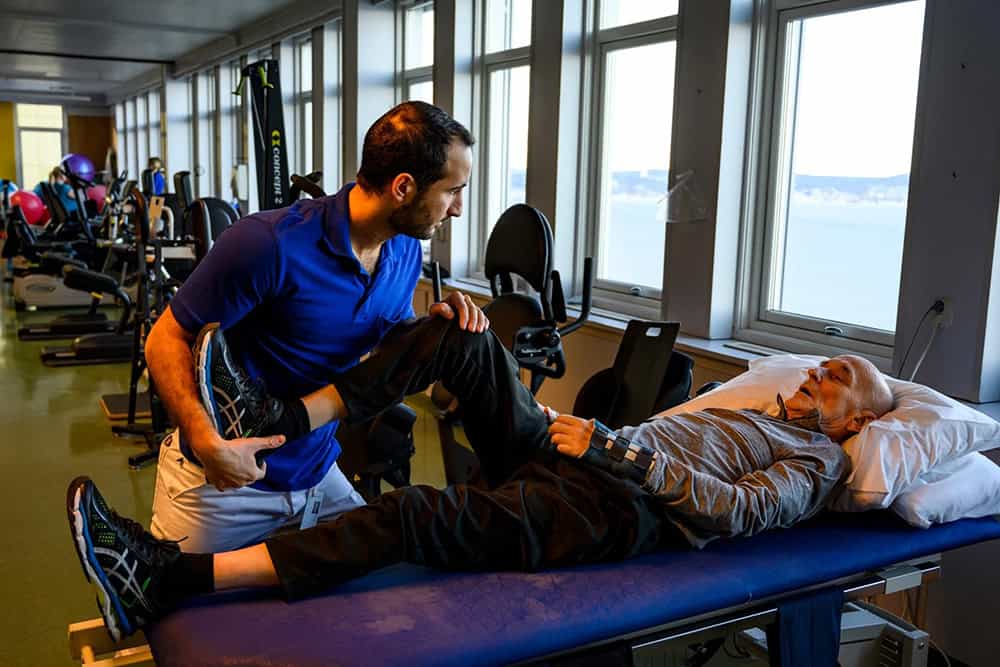Rehab centre at Ontario Tech in Oshawa given WHO Collaboration Centre status
Published August 19, 2024 at 4:20 pm

A disability and rehabilitation centre at Ontario Tech University has been designated as an official World Health Organization (WHO) Collaborating Centre.
The university’s Institute for Disability and Rehabilitation Research will serve as the WHO Centre for Rehabilitation and Musculoskeletal Health. Professor Pierre Côté of the school’s Faculty of Health Sciences, who heads up the research centre, will serve as Director of the new WHO Collaborating Centre.
The designation comes with WHO declaring that nearly one-third of the planet’s 8.1-billion people live with a health condition that could benefit from rehabilitation, such as back pain and arthritis, with many people in those circumstances unable to access the essential health interventions they need.
“We need concerted efforts to develop a global response to reduce the burden of musculoskeletal conditions by building research capacity and collecting data in the field of rehabilitation,” said Côté, adding that the designation by WHO will help promote the advancement and integration of rehabilitation (as part of universal health coverage), “to address unmet needs and help people independently participate in everyday activities like work, education and recreation.”
WHO Collaborating Centres are institutions such as research institutes and universities or academies which are designated by the WHO Director-General to carry out activities in support of WHO’s programs. Approved Centres must meet strict criteria.
Over the next four years, the centre will support the WHO in strengthening research in rehabilitation science, provide the agency with technical advice, and develop training and education initiatives.
Ontario Tech President Dr. Steven Murphy called the designation “historic,” and said it “showcases” the university’s global standing in health research.
“We are honoured to collaborate on this critical health priority, working together to promote equitable access to rehabilitation worldwide.”
The WHO Rehabilitation 2030 Call for Action estimates that globally, fewer than half of all citizens needing rehabilitation services are able to receive them, with data also showing Canada falls short as well, suggesting that 15 million Canadians could benefit from access to rehabilitation services.
Compounding the issue is the fact rehabilitation needs are expected to rise, affecting individuals of all ages and experiences – from young people with physical limitations to older people experiencing chronic disease and age-related challenges.
The new Collaborating Centre’s research will assist the WHO enable countries to:
- Strengthen their health systems to deliver condition- and disease-specific service-coverage results.
- Provide high-quality, people-centred health services, based on primary health-care strategies.
Currently there are more than 800 WHO Collaborating Centres in more than 80 countries working with the WHO on areas such as occupational health, communicable diseases, nutrition, mental health, chronic diseases and health technologies.
Antony Duttine, WHO’s Technical Lead for Rehabilitation, said the organization is “delighted” the north Oshawa university is joining the family of collaboration centres.
“The work of the institute has been known to us for some time and we have had several successful collaborations together in the past,” he said. “We are grateful for the work that the team does and are excited for the collaboration to get started and have a significant impact for our work on Rehabilitation 2030 and on musculoskeletal health.”
INdurham's Editorial Standards and Policies




